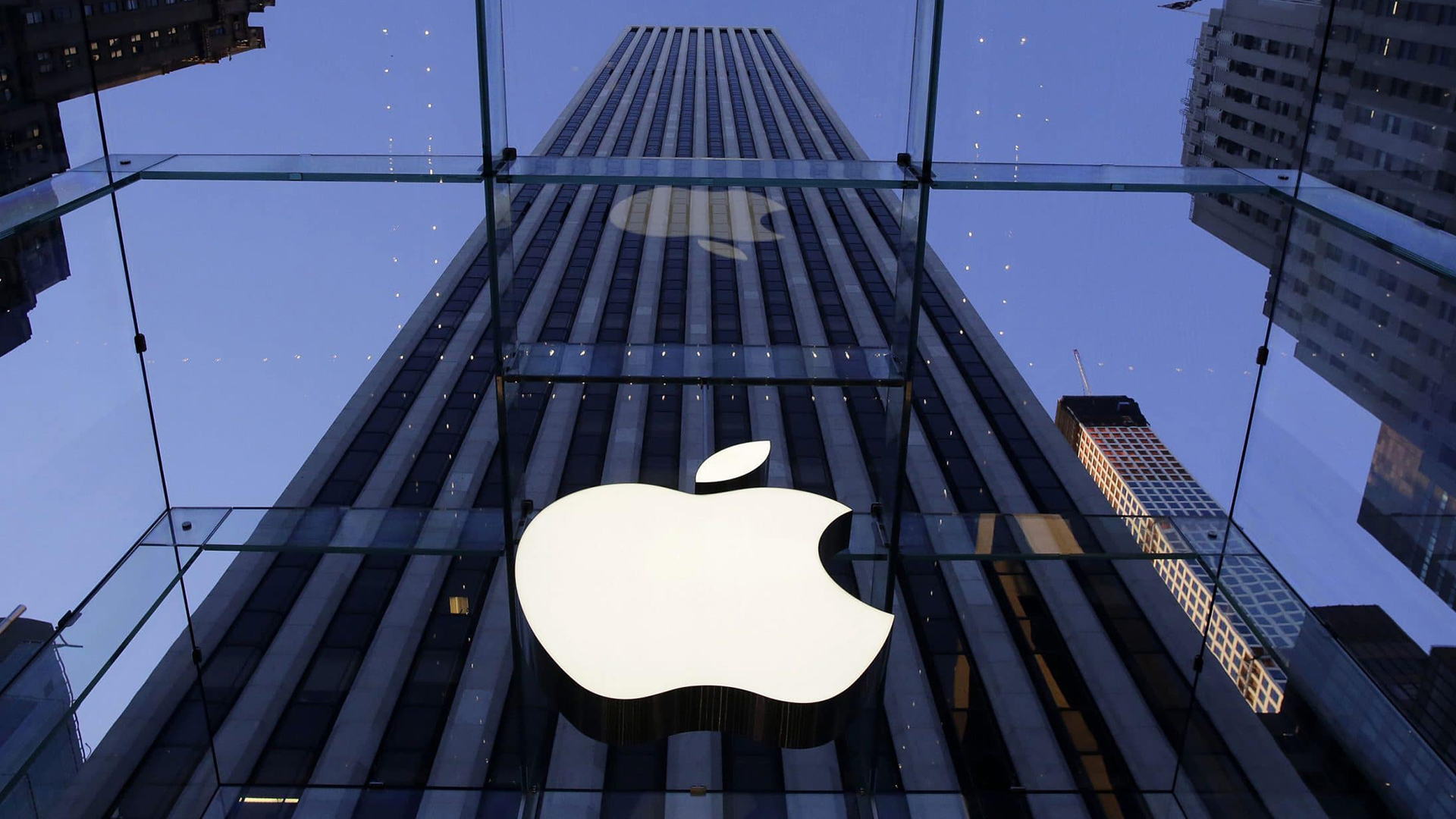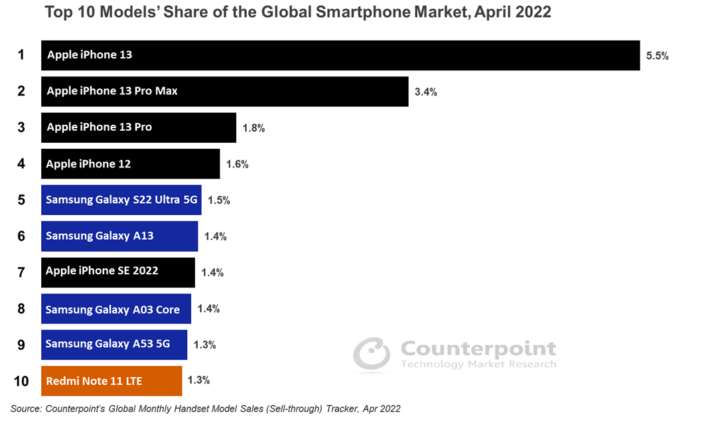Samsung's Galaxy S22 Ultra is doing relatively well. It was the most successful Android smartphone in April, but it was the only Samsung flagship to reach the top 10. And although the Korean tech giant leads the smartphone market in terms of total shipments, Apple is the clear winner in the flagship segment.
Samsung is the biggest smartphone manufacturer in the world, but its shipments include everything from very cheap phones to premium foldable flagship devices. To put things in perspective, the Galaxy S22 Ultra performed better than any other Android device, but it was outshined by four iPhone models by a considerable margin.
In other words, Samsung is seemingly winning over the global smartphone market in terms of raw shipments. But as far as premium phones go, Apple is the clear winner. And sadly, it doesn't look like Samsung can do much to turn this ship around unless it's willing to risk more.
Galaxy flagship phones may be sitting on a flawed foundation
The Android smartphone market used to take pride in its sense of free experimentation. After all, this same creative space and free-thinking approach led to the development of foldable phones.
But although there are benefits to this strategy, the problem is that Samsung never stopped experimenting with its candy bar smartphone designs and its proprietary skins for Android OS.
And while it is true that Android smartphone customers are more open to new ideas and changes, there also comes a point when experimentation needs to take a backseat to optimal solutions. Unfortunately, Samsung and the rest of the Android segment never really stopped searching for the perfect formula.
Every Android smartphone has to feature a new design every year, and most changes seem arbitrary rather than rooted in a deep understanding of what the market desires. It's been more than a decade since the Android platform began experimenting year after year, and often bi-yearly). After all this time, this approach seems to stem more from uncertainty than a deep understanding of design and consumer demand.
All this has allowed Apple — a company that is traditionally sticking to what it knows best — to build a much stronger fanbase and deliver a more optimized, full-fledged ecosystem through its iPhones year after year.
Until Samsung changes its management style to encapsulate a clearer vision of the future and a focus on the user experience, its Galaxy flagships will perhaps never get close to the level of success iPhones have or build as strong of a legacy. The answer seems to be a consistent vision, not coming up with the next-best gimmick design and software feature year after year.
In conclusion, Galaxy flagship smartphones are built on an inherently less stable foundation than iPhones. And unless Samsung changes its approach, even at the risk of losing its grasp over the global smartpone market, it may never beat Apple in the premium smartphone market.
Join SamMobile’s Telegram group and subscribe to our YouTube channel to get instant news updates and in-depth reviews of Samsung devices. You can also subscribe to get updates from us on Google News and follow us on Twitter.








